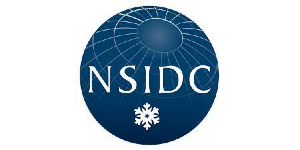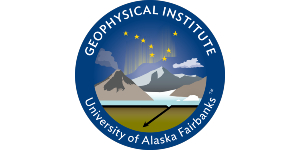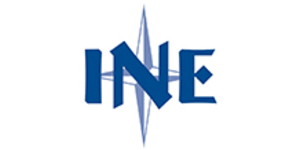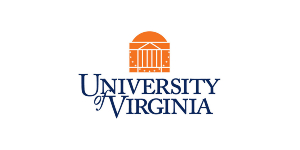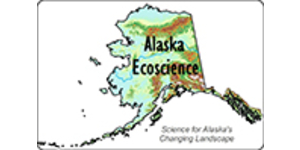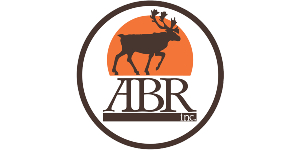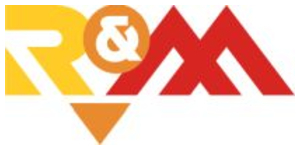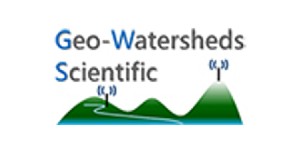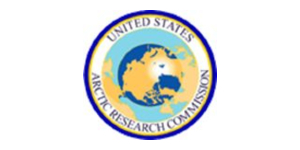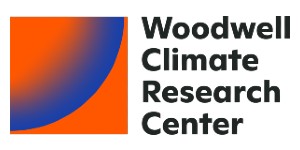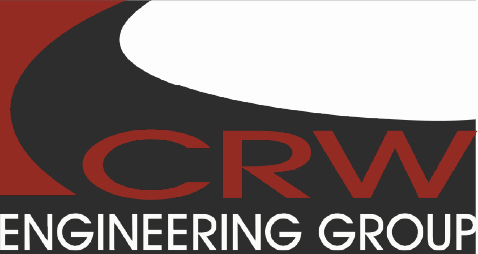PEEP Awards
Student Awardees, 2023 Permafrost Engineering Education Program (PEEP)
|
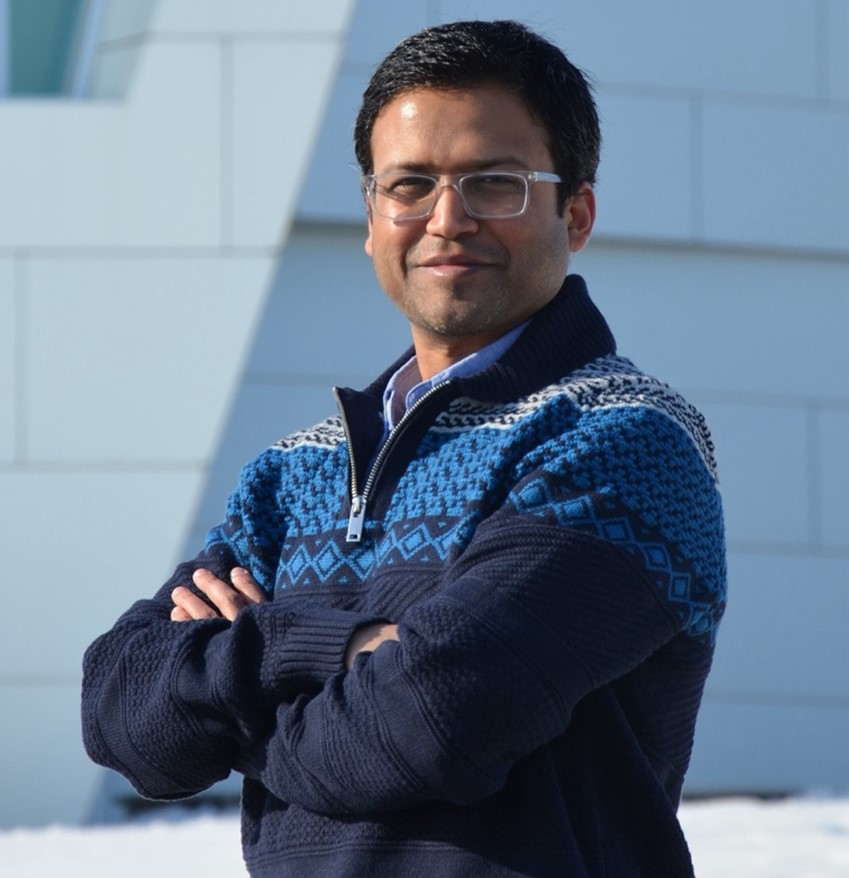 Kaytan Kelkar, University of Alaska Fairbanks Kaytan Kelkar, University of Alaska Fairbanks
My primary research interests are in mountain permafrost focusing on rock glacier dynamics, periglacial landslides, and permafrost modeling. I will present my rock glacier inventory of the central Alaska Range and a Very-Low Frequency survey of the Rainbow Ridge rock glacier in Alaska at AGU 2023. There is a growing need to investigate spatiotemporal trends of how permafrost thaw will impact high-latitude mountain communities to guide future policymaking. Our current understanding of processes that cause permafrost-thaw induced slope failure is limited. Attending AGU 2023 will give me the opportunity to exchange research ideas, build future collaborations, and gain valuable feedback from established researchers on my rock glacier research. The experience I will gain from attending AGU 2023 will set me on the path to work alongside world-class talent, broaden my professional network, and improve my scientific aptitude to fulfil my career ambitions of becoming a Quaternary periglacial geomorphologist. I sincerely thank the U.S. Permafrost Association for this opportunity and support.
|
Student Awardees, 2022 Permafrost Engineering Education Program (PEEP)
|
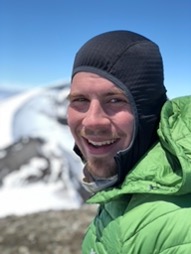
Joel Eklof
University of Washington
|
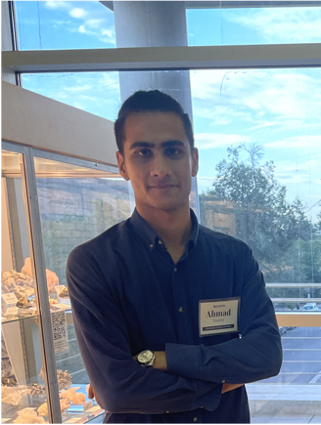
Ahmad Tourei
Colorado School of Mines
|
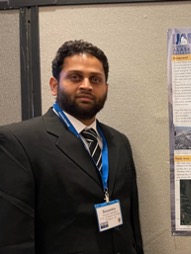
Soumitra Sakhalkar
University of Alaska Fairbanks
|
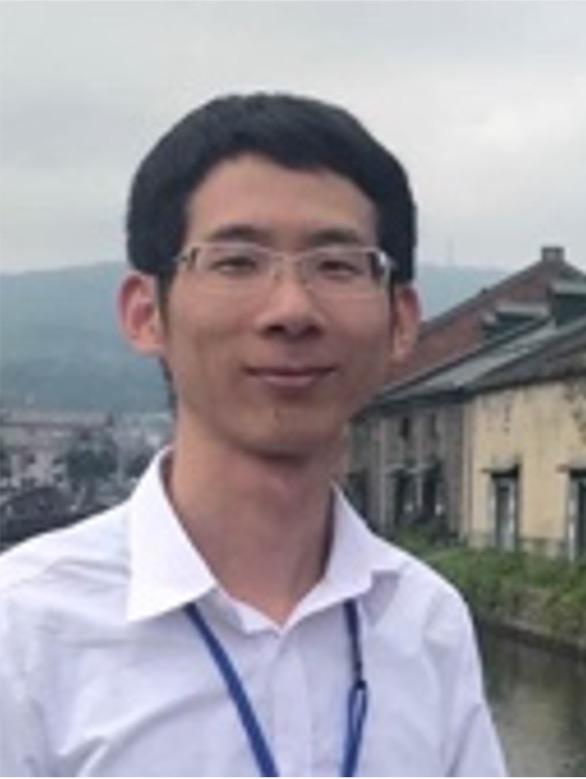
Lingcao Huang
University of Colorado Boulder
|
Student Awardees, 2021 Regional Conference on Permafrost (RCOP) & 19th International Conference on Cold Regions Engineering (ICCRE), Virtual
|
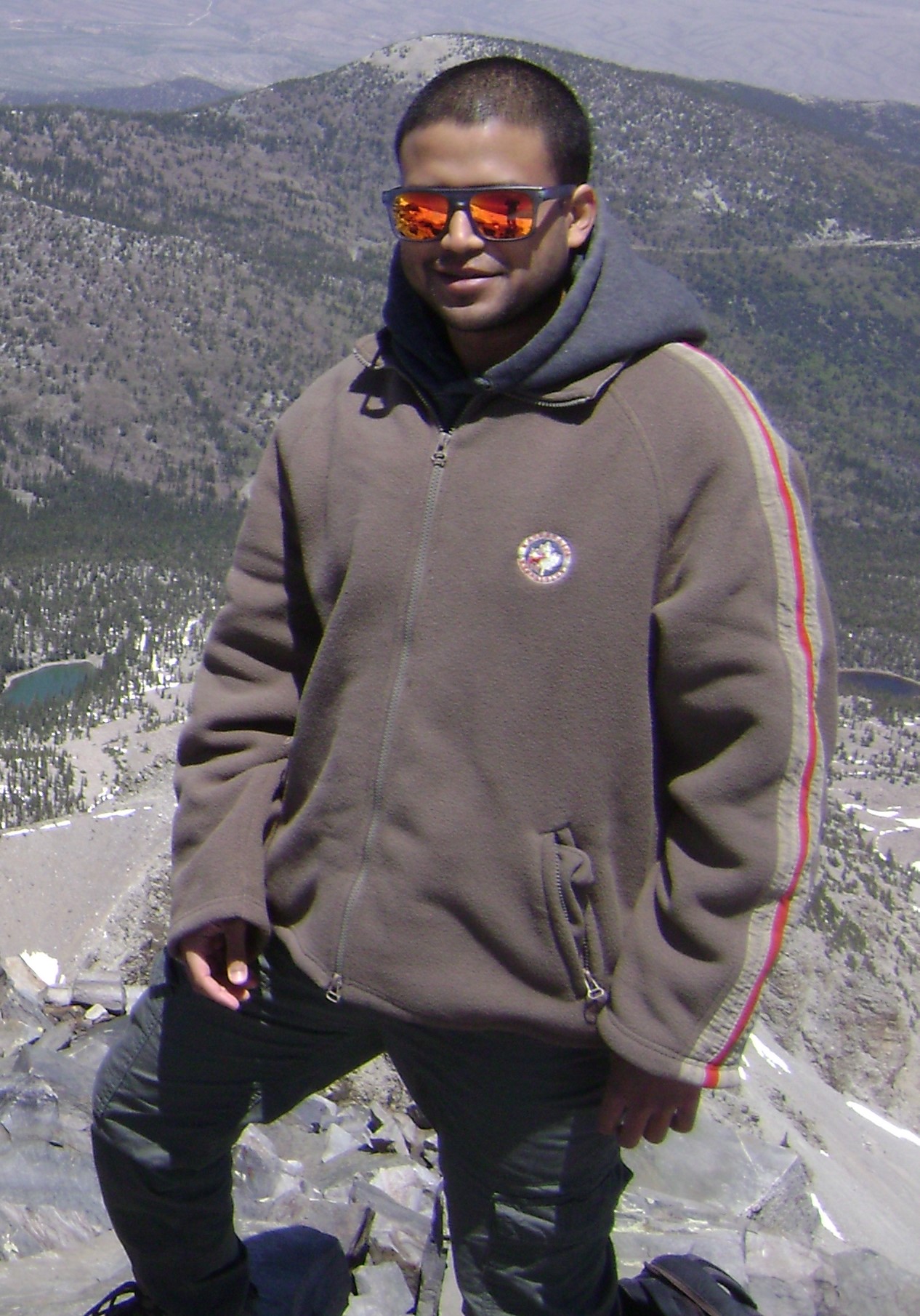 Kaytan Kalkar, University of Alaska Fairbanks Kaytan Kalkar, University of Alaska Fairbanks
My primary research interest is to identify the role of mountain permafrost degradation mechanisms propagating slope instability. I am investigating thaw-vulnerable slopes along the Parks Highway, Denali Highway, and Denali Park Road in the Alaska Range. This research combines geomorphology, field-based observations, and geologic engineering. The findings of my work will be a valuable resource for regional planners and cold regions engineers to promote best land use practices for sustainable land management. I strive to expand my research endeavor to initiate a periglacial slope monitoring network across mountain permafrost sites in Alaska. Attending the RCOP21/19th ICCRE Conference gave me the opportunity to gain valuable inputs from fellow early career scientists and infer current research problems in the mountain permafrost sub-discipline. I thank the PEEP Award Program and the USPA for this award which will help me to accomplish my research goal.
|
|
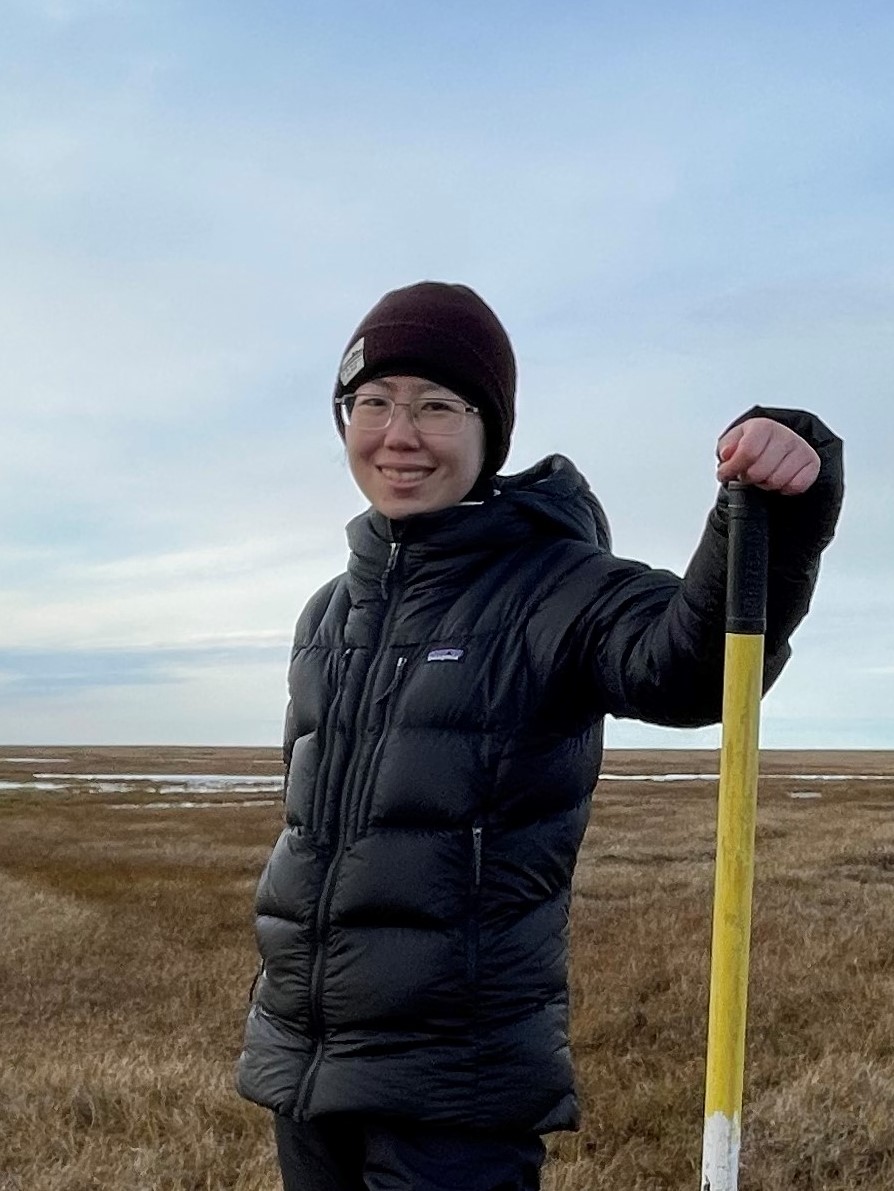 Min Liew, Pennsylvania State University Min Liew, Pennsylvania State University
Recent climate warming has resulted in severe permafrost thaw, impacting the life and wellbeing of the Arctic residents. As an early career researcher, I am interested in advancing the knowledge of the resiliency and sustainability of civil infrastructure systems in permafrost regions. In my dissertation, I study permafrost degradation and coastal erosion and their potential impacts on civil infrastructure in the Arctic. I synthesized and analyzed how geophysical and geomechanical properties of permafrost vary with temperature and highlighted the complex processes of permafrost degradation from a geotechnical perspective. I am very thankful that I had the opportunity to present my work at the RCOP21/19th ICCRE conference and received the Permafrost Engineering Education Program (PEEP) Award from the United States Permafrost Association (USPA). The monetary award allows me to continue participating in upcoming permafrost conferences, reach out to a greater audience, and receive critical feedback on my work. I am grateful to be part of the supportive USPA community and look forward to collaborating with researchers, engineers, and indigenous knowledge holders and, together, contributing to the research and education of permafrost engineering.
|
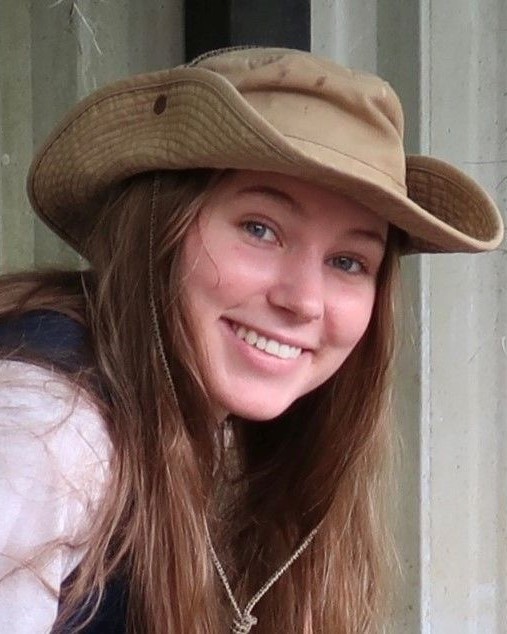
Kristina Levine, Texas A&M University
My name is Kristina Levine and I am getting my BS in Geology from Texas A&M University. The research I do is with my internship at Geo-Watersheds Scientific and the USPA Communications Committee for the USPA Permafrost Monthly Alert (PMA) program. At RCOP 2021, I presented on trends in permafrost literature from the PMA collection. The conference was a wonderful opportunity to connect with other people who are working to improve and promote permafrost-engineering educational resources. I am extremely thankful to have been apart of the PEEP awards and would like to thank all involved for their support and recognition of student research.
|
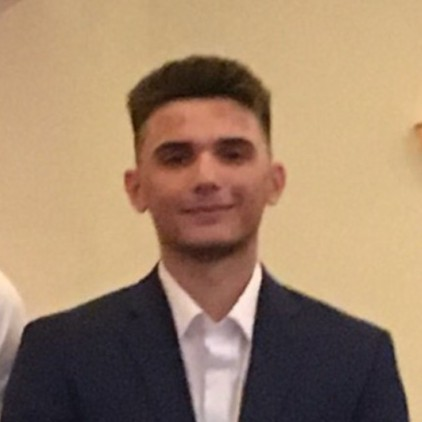
Elias Manos, University of Connecticut
Thank you to the USPA PEEP committee for the awards and generous financial support. At the 2021 RCOP, I presented my undergraduate research on deep learning-based automated mapping of ice-wedge polygon troughs and built infrastructure across the Alaskan North Slope using sub-meter resolution satellite imagery. This was my first time attending and presenting at a professional scientific conference, and even though this was a virtual experience, I was very excited to have the opportunity to share my work with and learn from permafrost experts. In Fall 2022, I will begin pursuing a master’s in remote sensing at the University of Connecticut. Throughout my graduate research, I hope to fuse artificial intelligence, remote sensing, and big image data to work towards pan-Arctic infrastructure mapping at a sub-meter spatial resolution, which will hopefully begin to provide the tools and create the information necessary to advance our understanding of the built environment's vulnerability to Arctic permafrost degradation, as well as its impacts on the natural environment. With the support I have received from the USPA, I can look forward to attending future conferences to present this work and further network with permafrost researchers.
|
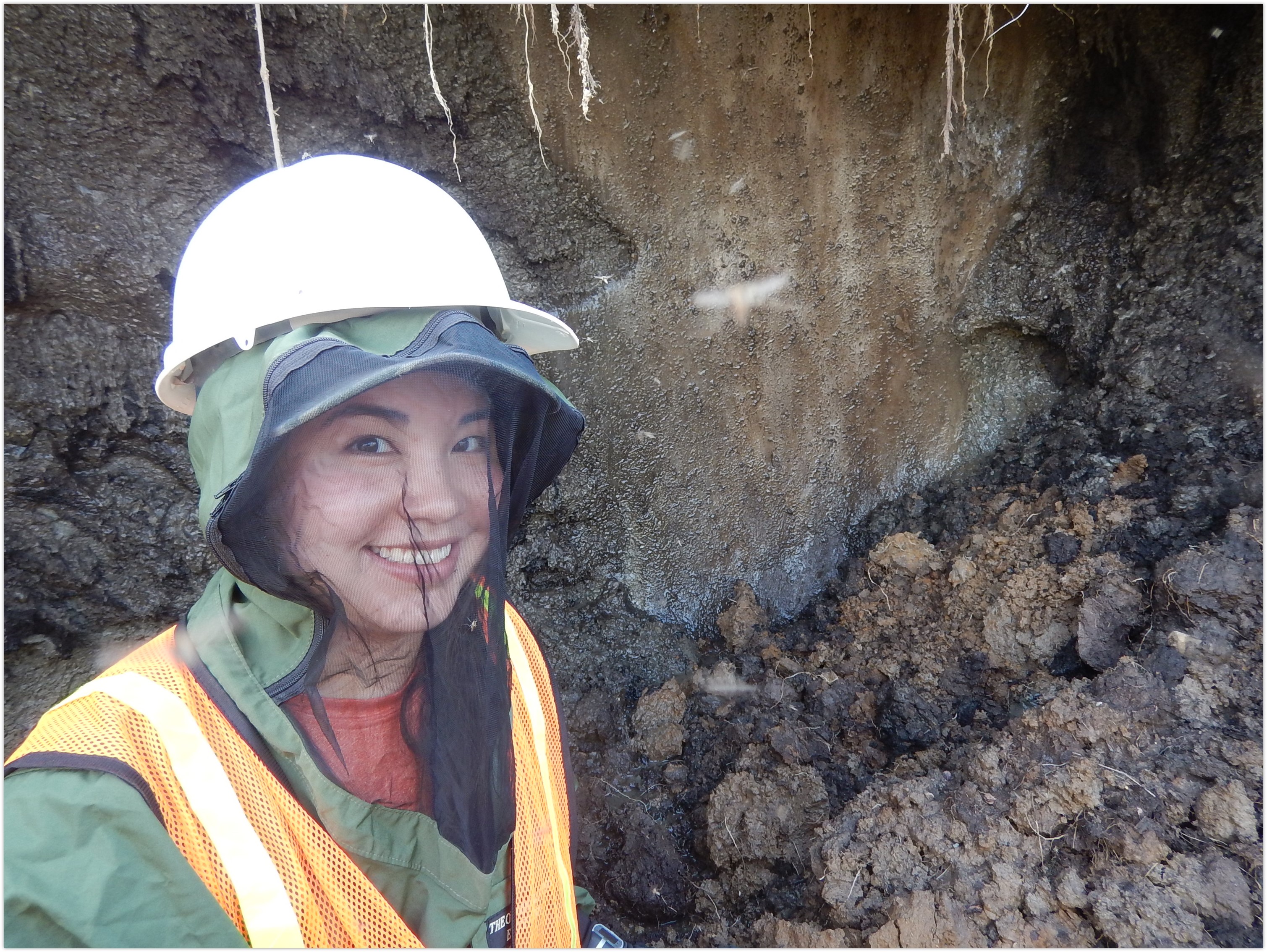
Jaimy Schwarber, University of Alaska Fairbanks
I was a geological engineering graduate student at the time of RCOP. I am primarily interested in geohazards within Alaska, and during my education I have had the opportunities to participate with work on frozen debris lobes, landslides, and retrogressive thaw slumps. My thesis research focused on identifying and mapping landslides within parts of the Fairbanks North Star Borough, AK. I presented preliminary findings of the landslide inventory map for the first time at this conference. This work is the first step for more landslide research in the region. I am grateful to the USPA for the opportunity to attend RCOP to learn the latest studies, network with my peers, and hear from prominent researchers. I am also grateful for the various awards.
|
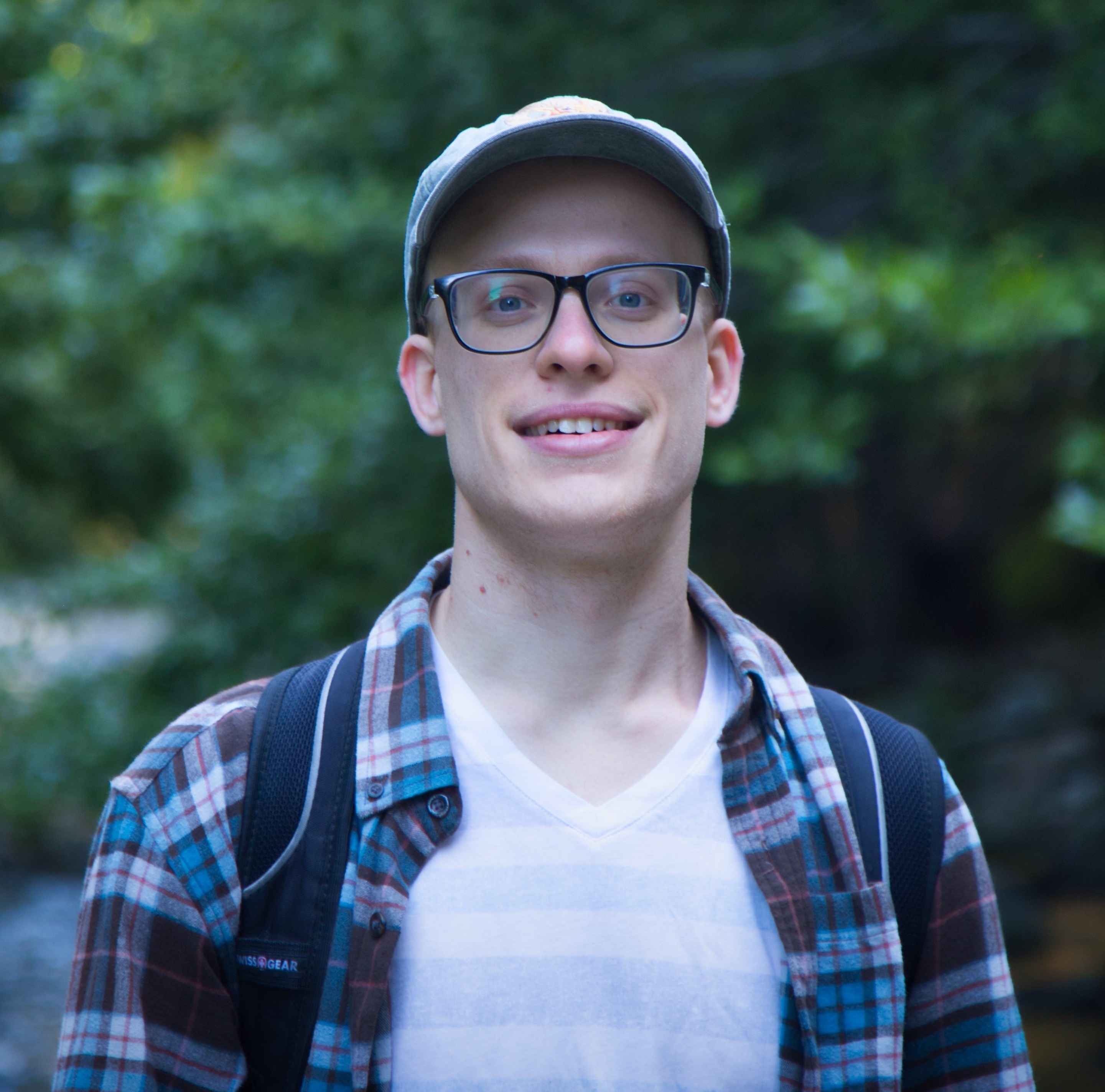
Lawrence Vulis, University of California Irvine
I am a PhD student in Civil and Environmental Engineering at the University of California Irvine studying how permafrost influences the morphology and hydrology of arctic river deltas. My research utilizes a combination of remote sensing imagery, in-situ observations, and climate reanalysis data to identify and quantify landscape patterns on arctic deltas and relate them to climate variability across deltas, which in turn is used to inform predictions of delta morphologic response to projected warming. This research is a multidisciplinary effort and involves supervision and collaboration with engineers, physicists, statisticians, and geomorphologists. I would like to thank the USPA and ASCE for hosting the 2021 RCOP and giving me and other students the opportunity to share our research. I would also like to thank the judges for their time in viewing and critiquing my presentation. The conference was an excellent opportunity to learn about ongoing permafrost research and connect with other scientists.
|

Yue Zhao, University of Alaska
My name is Yue Zhao, a Ph.D. student in Engineering based on a joint program between the University of Alaska Fairbanks and the University of Alaska Anchorage. My research is the prediction of climate change impact on highways in warm permafrost. With the help of USPA, I had the opportunity to present at the RCOP2021, even though it is a pre-recorded presentation. However, this is still a great experience in learning new ways to convey research findings. This meeting provides me an excellent chance to learn the latest research trends about permafrost and how to efficiently adapt to climate change and mitigate its associated hazards to the built infrastructure. Thank you again to USPA!
|
Travel Grant Winners, Tenth International Conference on Permafrost (TICOP), Salhekard, Russia
|
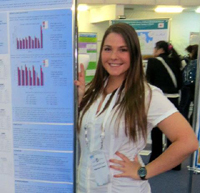 Demi Mixon, Texas A&M Demi Mixon, Texas A&M
Presentation Title: Characteristics of active-layer temperature profiles related to Arctic transportation management on the North Slope, Alaska
|
|
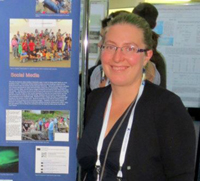 Kerri Lathrop, Tanana village school, Tanana, Alaska Kerri Lathrop, Tanana village school, Tanana, Alaska
Presentation Title: Teaching science in rural Alaska
|
|

 Kaytan Kelkar, University of Alaska Fairbanks
Kaytan Kelkar, University of Alaska Fairbanks



 Kaytan Kalkar, University of Alaska Fairbanks
Kaytan Kalkar, University of Alaska Fairbanks Min Liew, Pennsylvania State University
Min Liew, Pennsylvania State University




 Demi Mixon, Texas A&M
Demi Mixon, Texas A&M  Kerri Lathrop, Tanana village school, Tanana, Alaska
Kerri Lathrop, Tanana village school, Tanana, Alaska 
